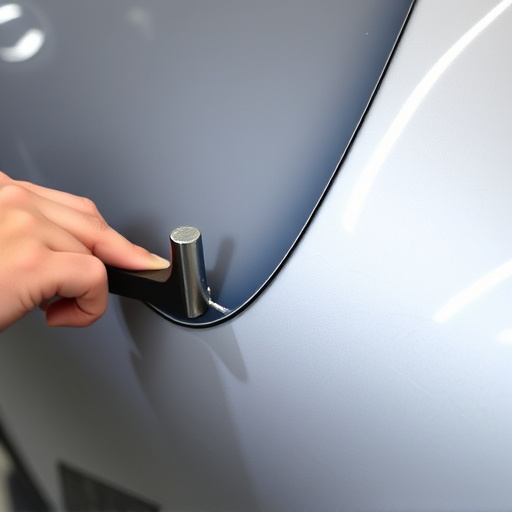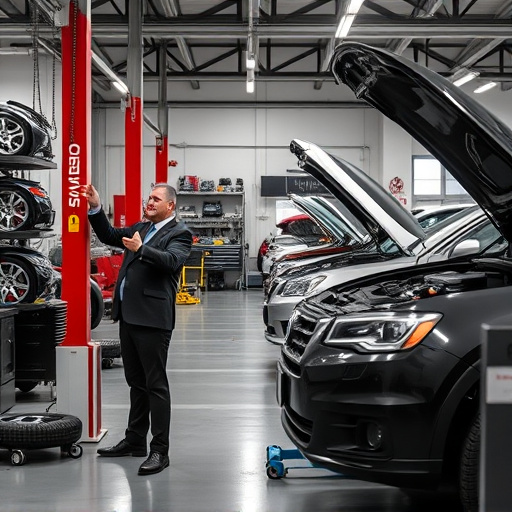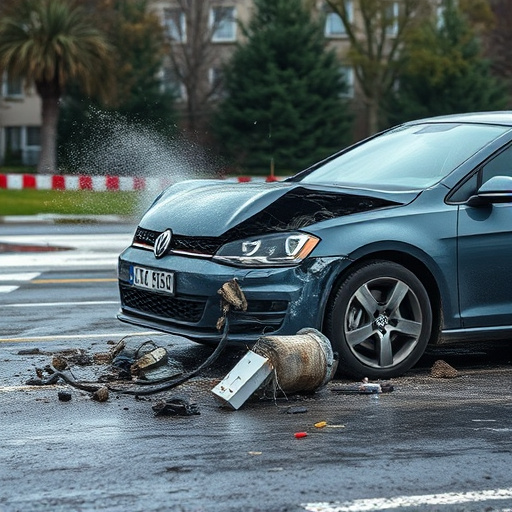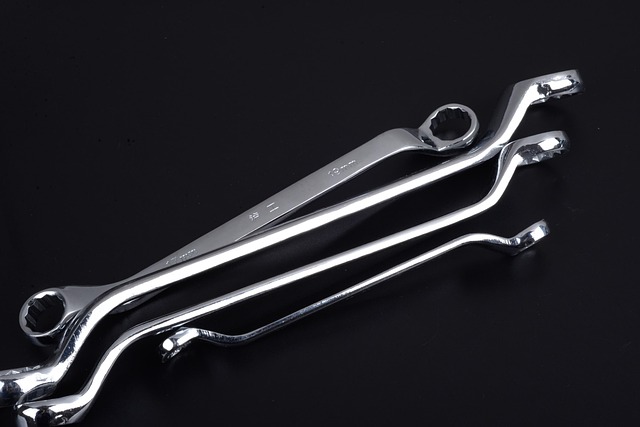Airbag safety certification is a vital process for auto body shops and repair centers, ensuring airbags function safely during collisions. This standardization of safety protocols not only protects vehicles but also obliges professionals to maintain high standards, fostering customer trust. By implementing rigorous guidelines for complex repairs, certified workshops enhance efficiency, reduce downtime, and gain a competitive edge in the automotive industry.
Airbag safety certification is transforming auto repair workflows, prioritizing both vehicle safety and efficiency. This article explores how understanding and adhering to stringent airbag safety certification requirements can streamline repair processes, ultimately enhancing customer satisfaction. We delve into the intricacies of these requirements, demonstrate their impact on efficient repairs, and highlight the benefits for workshops and drivers alike.
- Understanding Airbag Safety Certification Requirements
- Streamlining Repair Processes: A Certified Approach
- Enhancing Customer Satisfaction Through Efficient Repairs
Understanding Airbag Safety Certification Requirements

Airbag safety certification is a critical process that all automotive body shops and vehicle restoration experts must navigate to ensure compliance with industry standards. This rigorous certification involves a detailed assessment of an airbag’s structural integrity, functionality, and overall safety performance during simulated collisions. The primary objective is to guarantee that airbags deploy correctly, protect occupants effectively, and minimize the risk of secondary injuries.
Automotive body shops engaged in car restoration or repair work involving airbags must understand these certification requirements meticulously. Failure to meet these standards not only compromises vehicle safety but also poses legal consequences. By adhering to airbag safety certification guidelines, professionals in the automotive industry can streamline their repair workflows, enhance customer satisfaction, and contribute to safer road environments for all drivers.
Streamlining Repair Processes: A Certified Approach

Airbag safety certification plays a pivotal role in revolutionizing the repair workflow efficiency within the automotive industry. By setting standardized safety protocols and quality assurance measures, this certification ensures that auto body services and vehicle repair centers adhere to stringent guidelines when handling airbags. This, in turn, leads to streamlined processes for frame straightening and other intricate repairs.
Certified technicians are equipped with specialized knowledge and skills, enabling them to swiftly diagnose issues related to airbags while maintaining optimal safety standards. This expertise translates into reduced downtime for vehicles undergoing repairs, as well as enhanced precision during the restoration process. Consequently, airbag safety certification acts as a game-changer, fostering efficiency across various facets of vehicle repair, from initial assessment to final quality check.
Enhancing Customer Satisfaction Through Efficient Repairs

In today’s competitive automotive industry, enhancing customer satisfaction is paramount for workshop success. One effective strategy to achieve this is by streamlining repair workflows, ensuring quick and efficient service. Airbag safety certification plays a pivotal role in this process. By implementing rigorous standards and protocols, workshops can maintain optimal performance during complex repairs, such as those involving hail damage repair or intricate classic car restoration. This not only reduces downtime for customers but also fosters trust, knowing their vehicles are in capable hands.
Efficient repairs translate into happier clients, who appreciate timely returns to the road. Moreover, well-certified workshops can offer faster turnaround times without compromising quality, setting them apart from competitors. This focus on operational excellence is a key driver of customer loyalty and positive word-of-mouth recommendations for automotive repair services.
Airbag safety certification plays a pivotal role in streamlining auto repair workflows, leading to enhanced customer satisfaction. By understanding and adhering to stringent certification requirements, repair shops can optimize their processes, ensuring efficient and safe airbag replacements. This not only saves time and costs but also guarantees the integrity of modern vehicles’ complex airbag systems. Embracing certified practices is a step towards better road safety and improved service quality in the automotive industry.














